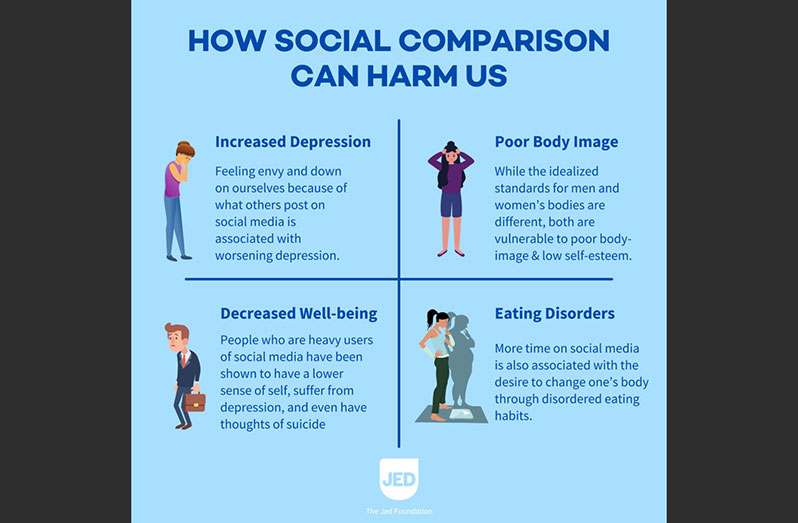IF you’re an active user of social media, then I’m sure you’ve heard about the term, “photoshop.” Now, Adobe Photoshop is actually a software application that is used by photographers or graphic designers to edit pictures or content with. However, the term “photoshop” is loosely used to describe retouching, editing or modifications done on images. It doesn’t necessarily mean that you used the Adobe software because, over the years, many other applications are now easily accessible and available to use to “enhance” the looks of images. Photoshop is often used on Instagram to edit and retouch pictures before they are posted. All of your wrinkles, textures, fine lines, tummy rolls and even the hue of blue in the sky—can all be edited or “photoshopped” to one’s liking. In essence, you get to create your idea of reality on social media by using these photo-editing applications and tools.
 These apps allow one to have creative expression, but at the same time, they can also be detrimental to our sense of reality and our understanding of the real world. As someone who is a part of the beauty industry, I understand this all too well. I am also very guilty as it relates to editing one’s pictures. Hence, I’m writing this article to enlighten you on what I’ve learned thus far by doing so. At first, I’ve always wondered why my makeup doesn’t look as flawless as the work portrayed by other popular artists. I’ve always wondered why no matter what skincare routine I follow, I can’t seem to get a face without pores or textures. Eventually, I discovered that many, if not all the pictures posted online had some form of editing before they were posted. Likewise, photographers may feel that their pictures aren’t the best in the game no matter how hard they try. Women may constantly be judging their body image and looks due to brands constantly portraying edited versions of women. Products, brands, ideas and even places are edited before they are sold and promoted on social media, whether it be a simple filter or an entire photoshopped session. People also try to keep up with the aesthetics and looks because it is what the algorithm constantly promotes on certain platforms.
These apps allow one to have creative expression, but at the same time, they can also be detrimental to our sense of reality and our understanding of the real world. As someone who is a part of the beauty industry, I understand this all too well. I am also very guilty as it relates to editing one’s pictures. Hence, I’m writing this article to enlighten you on what I’ve learned thus far by doing so. At first, I’ve always wondered why my makeup doesn’t look as flawless as the work portrayed by other popular artists. I’ve always wondered why no matter what skincare routine I follow, I can’t seem to get a face without pores or textures. Eventually, I discovered that many, if not all the pictures posted online had some form of editing before they were posted. Likewise, photographers may feel that their pictures aren’t the best in the game no matter how hard they try. Women may constantly be judging their body image and looks due to brands constantly portraying edited versions of women. Products, brands, ideas and even places are edited before they are sold and promoted on social media, whether it be a simple filter or an entire photoshopped session. People also try to keep up with the aesthetics and looks because it is what the algorithm constantly promotes on certain platforms.
We constantly compare ourselves to other people online without realising that those people aren’t real. People edit their pictures because they unconsciously make their social media page a “reality” of their own. We can’t necessarily edit our everyday lives or who we are, but on social media, we supposedly can. For some, it’s a space that they use to become the person they’ve always wanted to be. Ever met an online friend for the first time and realised that they are the complete opposite of who they are online? They, we, create a space for ourselves to be whom we wish or want to be. Again, it’s great to have creative expression, but you should know when to draw the line when it comes to what determines your actual reality.
As with everything else in life, you should use social media with caution and at your own risk. While people portray these falsehoods of who they are, you should take everything you see or hear with a grain of salt. Focus on who you are and how you can become the best version of yourself, instead of trying to compare yourself to others in an alternate reality. Be sure to curate your feed and organise the people and things you’d like to see or hear from. You should also continually work on your self-awareness and esteem. You’ll be able to better stay true to who you are and not allow yourself to be phased by what other people post. You’re only seeing the highlights or parts of people’s lives that they want you to see. The minute you become aware of who you are and how to define reality vs social media—it’s the minute you’ll become more critically conscious of what you should and should not take seriously every time you decide to scroll online.











